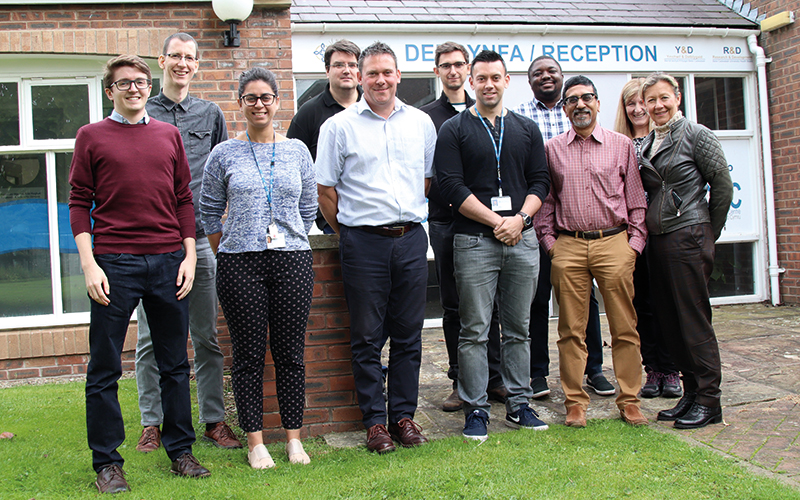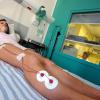Professor Stephen Fôn Hughes gives a guided tour of his laboratory in Wrexham, North Wales.

The Maelor Academic Unit of Medical and Surgical Sciences (MAUMSS) is a novel initiative by Betsi Cadwaladr University Health Board (BCUHB), co-established in 2021 by Professor Iqbal Shergill, Professor Stephen Fôn Hughes and Professor Arvind Arya. MAUMSS is designed to encourage and support research within the health board and to promote academic activity, basic science, and clinical research across North Wales and beyond.
MAUMSS is located in Wrexham (North Wales) and staffed by an interdisciplinary team of academics, clinicians, scientists and postgraduate students who are available to lead on, and help other healthcare professionals develop and run, all kinds of clinical research projects. It has several laboratories containing state-of-the-art molecular, analytical and diagnostic equipment. There are also meeting rooms, video-conferencing and hot-desk facilities. All of this is available for use to encourage new researchers, help maximise research impact and ultimately provide better outcomes for patients and the public.
The main aims and objectives of MAUMSS are to:
- Enhance the health board’s profile by promoting MAUMSS as a Centre of Excellence for supporting staff development and continuing education and training, which is central to all healthcare professionals practice, with the emphasis based on lifelong learning.
- Promote and develop expertise in academia (programme development), healthcare education (teaching and learning), and to encourage staff, affiliated colleagues and students within the region and beyond to undertake and participate in research activities. Develop a pan-Wales collaborative approach to academia and research scholarly activity.
- Develop and sustain long-term collaborative partnerships with local, national, and international higher education institutions and commercial organisations.
To achieve these aims, collaboration within the NHS and with academic and commercial organisations is essential. MAUMSS has established collaborations with Wrexham Glyndwr, Aberystwyth, Staffordshire, Keele, Bangor, Warwick, Oxford, Swansea, Cardiff and Birmingham universities, along with the MRC Laboratory of Molecular Biology in Cambridge. Via BCUHB, MAUMSS is an official partner with Wales Cancer Research Centre and Wales Kidney Research Unit. It is also affiliated with the Celtic Advanced Life Science Network and the Life Sciences Hub Wales.
Examples of feasibility or basic science research studies currently underway at MAUMSS include using artificial intelligence (AI) to monitor patients before and after surgery to identify those who will develop complications. Several studies are looking to develop novel urological biomarkers to aid in the prediction of patients with post-operative complications and cancer recurrence. Changes to microRNA expression in head and neck tumours and epigenetic changes in triple negative breast cancer are being investigated. A molecular diagnostic technique is also being developed for the rapid diagnosis of bacterial meningitis in newborn babies, as is a project looking at hearing loss in elderly patients with dementia.
As part of its formal collaborative partnership with its local university, namely Wrexham Glyndwr University (WGU), MAUMSS has been instrumental in conceiving, developing and subsequently delivering IBMS-accredited BSc (Hons) Biomedical Science, an MSc in Biomedical Science and two IBMS-approved MRes programmes in Applied Biomedical Sciences Research and Applied Clinical Research. MAUMSS, in collaboration with WGU, also delivers successful MPhil and PhD programmes.
For more information, visit maumss.com and follow @BCU_MAUMSS on Twitter.



